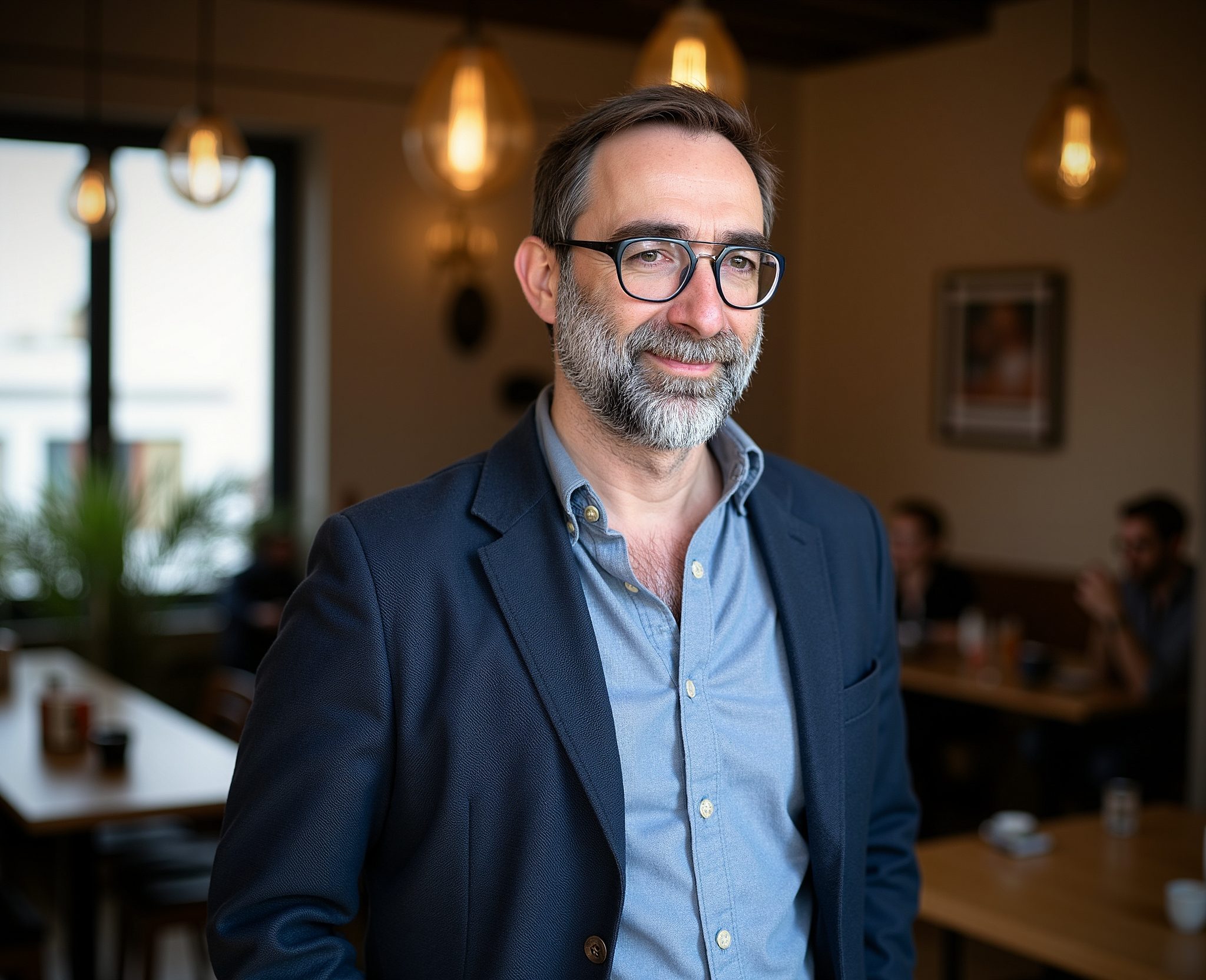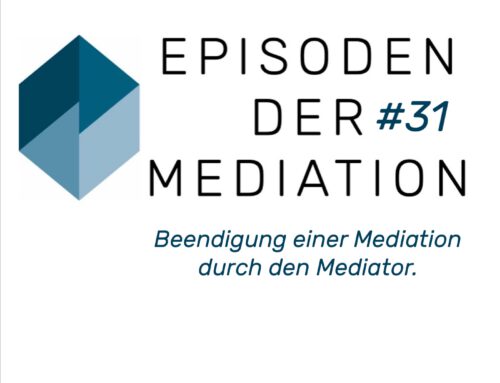Artificial intelligence (AI) and new technologies in mediation
Opportunities in dealing with conflicts
Interview led by Friedhelm Röttger with Prof Dr Sascha Weigel, Leipzig in the course of the
Mediation day on 21 September 2024
in the Schleswig-Holstein
High Administrative Court
in Schleswig
Published in Schleswig-Holsteinische Anzeigen.
Ministerial Gazette of Justice for Schleswig-Holstein, March 2025.
Professor Dr Weigel, you are an honorary professor at Martin Luther University Halle-Wittenberg, a conflict consultant and mediator as well as a licensed trainer (BM and EATA). On 21 September 2024, you gave a lecture on "Artificial intelligence and new technologies in mediation" at the mediation conference at the Higher Regional Court of Schleswig.
I have a few questions about this:
1. what is your source profession and how did you come to the topic of "mediation and AI" through your work?
My original profession is law. I studied law in Leipzig and Berlin from 1998 to 2003 and then completed my legal clerkship in Saxony until 2005. I came to mediation through my training in transactional analysis. This opened up the world of counselling beyond specialist legal advice, i.e. process counselling and support.
The topic of new technologies and AI in particular came to me much later. It was only as a freelance mediator, which I started working as in 2011, that the internet and its hardware-related requirements became part of my professional focus. However, this developmental step was just as significant for me as the move away from legal practice towards litigation counselling.
2 At the beginning of your presentation, one of your core theses was: "The question is not whether and when AI will be better than humans, but who can best utilise AI and how". Can you explain this thesis in more detail and do you really think that AI is already qualitatively better than humans?
Regarding the second part of your question: No, I'm not saying that AI is already better than humans. That's not relevant either. The thesis is more about the fact that in the near future, counselling and therefore also conflict counselling by way of mediation will be better carried out with artificial intelligence than without it. And that is why mediators with artificial intelligence are more likely to be commissioned than mediators without it. Artificial intelligence is a tool, not a competitor. They support mediators in their preparatory, mediating and follow-up work and make them better mediators in their own way.
3. you have presented various AI tools (e.g. Gemini, Perplexity, Llama, Meta, Claude, Copilot or Chat-GPT). The research, writing and chatbot tools are probably the most interesting for lawyers. From your experience, which of the tools can you particularly recommend for judges and lawyers - especially in the context of mediation?
I think Perplexity is the most recommendable for research because it includes the source citation. And Claude and Chat-GPT are, in my opinion, the most suitable language models and tools for text generation, but also for text entry and summaries, documentation as a keyword. But let's not forget Gemini. The Google tool Notebook LM is excellent for making texts accessible. Keyword: audio summarisation.
But if I had written and sent the text just one day earlier, I would not have been able to include the keyword Deepseek. The pace of development is excitingly fast.
4. you have impressively demonstrated in the forum that chat GPT can not only be a source of topics and ideas, but also a competent dialogue partner for self-reflection. Will chat GPT be able to help with hypothesising in mediation or supervision in the future, for example, or even replace people?
Tools such as chat GPT, which enable voice input and with which we can have a real conversation, will certainly be used for self-reflection in a way that we can hardly imagine today. Professionally, they will not only enable therapy, but also supervision and other clarification discussions. But they will not replace human therapists, coaches, supervisors and counsellors. However, they will have to engage with more competent clients.
5. generative AI is now available with impressive speed has also arrived in legal reality. In order to achieve meaningful results, it is crucial to ask the AI the right questions ("prompts"). Can legal prompt engineering be learnt quickly or does it require special training?
It certainly requires specific practice, but it can be learnt. What's more, there are now AI applications that do exactly that, checking and correcting the quality of prompts. The prompt generator from Anthropic on Claude's tool: Anthropic Console should be mentioned here. We presented this prompt generator in our first meeting of the "AI Compass for Mediators, Coaches and Consultants" initiative. This application helps to develop high-quality, i.e. specific prompts.
6. among other things, you mentioned that you once used AI to generate exam questions from previously uploaded legal essays as an examiner in the state examination for administrative law - while driving. Could AI also be a model in the future for quickly and reliably accessing non-specialist legal topics?
I prepared for the exam interview thematically, rather than having the exam questions generated. The fascinating thing about this approach is its efficiency, as I had a competent dialogue partner at my side. I was able to get in the mood for the exam with him.
Language models are not truth models and cannot be used reliably for research tasks without further ado. There is a need for specifically configured AI applications that could take on such tasks. This will certainly soon be the case. Such AI assistants will also be technically adept in the future.
For the legal world, I recently heard about the Berlin start-up Xayn, which is working on precisely these issues. The research time for legal issues will certainly be drastically reduced – and possibly also make complete subsumptions possible in minutes.
7. research and results of the AI in the legal field must be correct in terms of content. How can the user protect himself from so-called hallucinations or false information?
This also depends on the need for protection. A technical expert needs less protection than a layperson because they are able to scrutinise the information more critically and accurately. Nevertheless, the specialist also needs good tools for research work. A customised AI will probably be a basic prerequisite for being able to rely on its accuracy. However, the same applies to machine hallucinations as to human errors: you are never completely and forever safe!
8 Finally: Chat-GPT & Co are probably not yet substitute lawyers. Will the courts still be able to determine the law without AI in the future?
No, it won't. AI is not there to find the law in material terms. Law remains attributable to people because it is a decision.
But AI applications will be inevitable for the judiciary as a whole, which must organise the process of finding and administering justice in all its complexity – and in a way that must be inviting. AI could therefore help to counter the "migration process from German courts", as evidenced by the decline in the number of cases received by German courts.
Prof Dr Weigel - Thank you very much for the interview!





How did Prof. Dr Sascha Weigel's professional background lead him from the world of law to the field of mediation and the use of artificial intelligence in mediation?